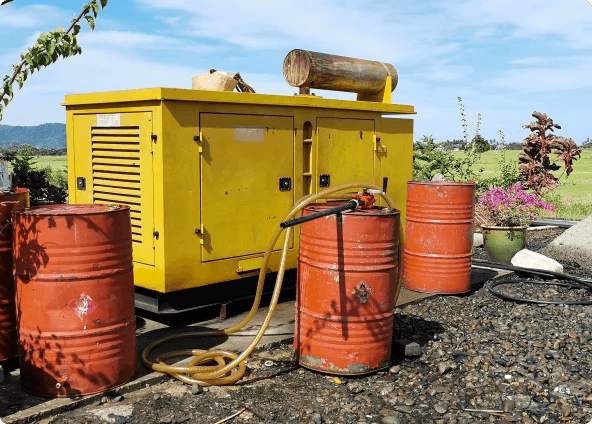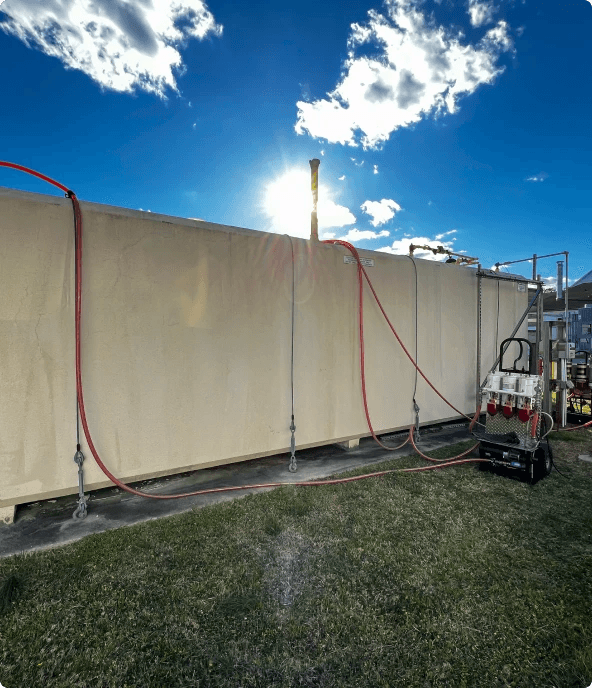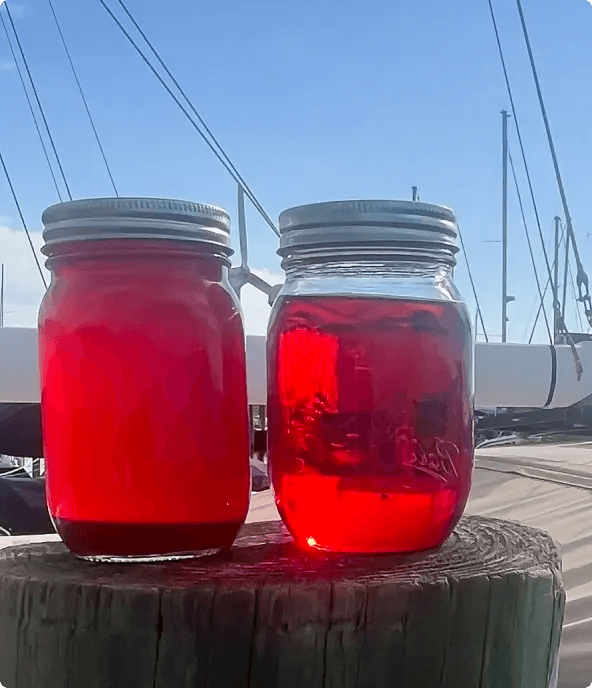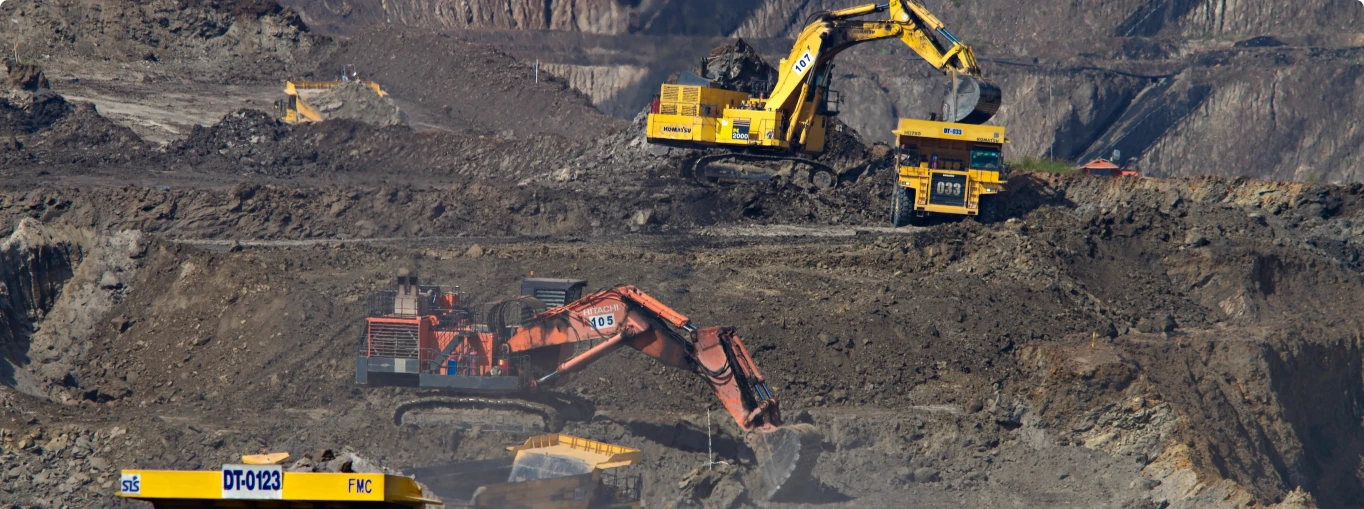Commercial & Industrial Fuel Polishing
Fuel polishing and Tank Maintenance Services for Diesel Fuel Storage Systems
Backup Generators | Storage Tanks | Fuel Holding Tanks | Heavy Equipment Tanks

Are You Prepared for Critical Service Interruptions?
Diesel generator maintenance often revolves around load testing or replacing/upgrading parts. However, one critical aspect of maintenance that is often overlooked is diesel fuel management. For your organization to be protected from power outages, you need:
1. A reliable, well-maintained backup power generator.
2. On-site supply of clean fuel to power the generator during an outage.
3. A robust maintenance program.
Similarly, stored fuel is your facility's emergency lifeline. Maintaining your fuel supply is just as important as maintaining your backup generator or other critical infrastructure equipment.

If your organization can’t afford to experience a critical outage, why take the chance on fuel tank contamination? Will your maintenance program protect you from the worst scenario?
The Problem
Is Your Fuel Tank Contaminated?
Your fuel storage tank is responsible for keeping you powered, but operations come to a halt when your generator won’t run. Contamination can come from many sources, like water or debris. However, if left unchecked, your fuel tank can grow microbes creating biomass sludge in your tank.
Service Contracts
Reliable and professional facility managers know that proper fuel storage procedures are critical to infrastructure maintenance. A service contract with Mojo Fuel Optimization will maximize uptime and reduce costs. In addition to annual fuel polishing and tank cleaning, a service contract includes quarterly fuel sampling and tank inspection at no additional costs. Many facilities find that written reports from a credible fuel treatment company will help to de-risk and drive down operational costs associated with improperly managed fuel storage.
Mojo Fuel Optimization service contract features:
- Keeps fuel fresh and optimized for reliable emergency equipment operation.
- Recognized as an essential part of fuel storage management.
- Quarterly fuel sampling and tank inspections with Lab analysis available.
- No-cost and no-obligation initial fuel sampling and tank inspection.
- Up to a 20% discount over postpaid services.

The Solution
What is fuel polishing?
Fuel polishing involves removing debris and water from diesel. Fuel polishing improves octane/cetane and cleans deposits in tank & fuel systems. Polished fuel can be put back into a clean tank salvaging previously unusable fuel. We are able to restore 90% of fuel in most cases. Polishing fuel & tank cleaning is an inexpensive maintenance procedure versus the repair or replacement of expensive fuel system components.
Our Process
Our proprietary fuel polishing service goes above and beyond to save your fuel system!
Water & Sludge Removal
Our team of professionals begins the cleaning process by gaining access to the bottom of your storage tank, carefully and thoroughly extracting the accumulated water and sludge. This step is crucial in preventing damage to your fuel system and ensuring the optimal performance of your equipment.
Filtering
Once the water and sludge have been removed, our technicians proceed to filter the remaining fuel multiple times through our cutting-edge multistage separators. Utilizing a combination of high-performance centrifugal separators and ultrafine filtering technology, we can effectively remove any residual particulates and entrained water still present in the fuel.
Fuel Additives
During the polishing process, we inject chemical additives* to absorb water at the molecular level, restore cetane/octane levels, and add a cleaner that will treat internal fuel system components as the restored fuels are burned. *Our additives are petroleum-based, contain no alcohols or acids, and will not degrade hoses & gaskets or damage sensitive fuel system components.
Diesel Fuel Testing
In recent years, generator fuel test requirements have become part of life safety regulations. Local fire and building code authorities also require test documentation as part of their inspection. NFPA 110 "Standard for Emergency and Standby Power Systems" is a standard for people who own and operate buildings with emergency generators. This is a starting point for what a building owner should consider as good practice and can go further to a legal requirement as mentioned in building regulations. NFPA 110 says the following about fuel testing: “Fuel quality testing shall be conducted at least annually in accordance with the appropriate ASTM standards. It is recommended that limited fuel quality testing be performed annually using appropriate ASTM test methods to determine if existing fuel supplies are suitable for continuous long-term storage. Special attention should be paid to sampling the bottom of the tank so that the stored fuel is as clean and dry as possible and the growth of water, sediment, or microbes in the bottom of the tank is minimized. The ASTM D975 diesel fuel standard includes test methods for existing diesel fuel. The most common method of testing diesel fuel is to have a generator service company take a sample and send the sample to a laboratory for testing. This will likely cost between $100 and $500 per year, but more extensive testing can cost up to $1,000. These separate costs can be greatly reduced with a Mojo Fuel Optimization Service Contract.
What is tested?
The ASTM D975 standard describes 13 different tests. However, many of these tests are for newly refined fuel, would be available on your fuel supplier's test certificate, and will not deteriorate. Here are the recommended annual tests for deterioration of fuel properties:
- Water: Maximum 500 PPM (KFM)
- Microbe: Pass/Fail
- Number of particles: Maximum 18/16/13 (according to ISO 06)
Regular fuel polishing keeps fuel quality within an acceptable range. Mojo Fuel Optimization offers regular testing as part of our Service Contracts, so there is no reason to ever fail an inspection.


Frequently asked questions
- Is fuel polishing expensive?
- The cost of fuel polishing service depends on several factors, such as the size of the storage tank and the extent of the contamination. However, when compared to the cost of equipment repairs, replacement, or a breakdown in your business operations, it is always cheaper to get a regular cleaning.
- How often should diesel fuel be polished?
- Depending on the application and other maintenance procedures, we recommend that stored fuel for backup services be polished once a year. If the fuel is used for critical infrastructure, i.e., a hospital, nursing home, or data center, we recommend a fuel quality monitoring program as well.
- Can you polish diesel fuel and gasoline?
- Mojo Fuel Optimization can polish and restore diesel and gasoline!
- How does water get into my fuel tank?
- Condensation is the most common source of water contamination in fuel tanks.
- How does “Diesel Bug” or “Algae” get in my tank?
- With today’s Biodiesel, it is hard to keep it out. But if you keep the water out of the fuel, the microbes cannot grow and produce the sludge and slime that causes problems.
Let us restore your fuel quality.
Protect your equipment, prevent breakdowns, and maximize efficiency with our expert fuel polishing service. Contact us today to schedule!



